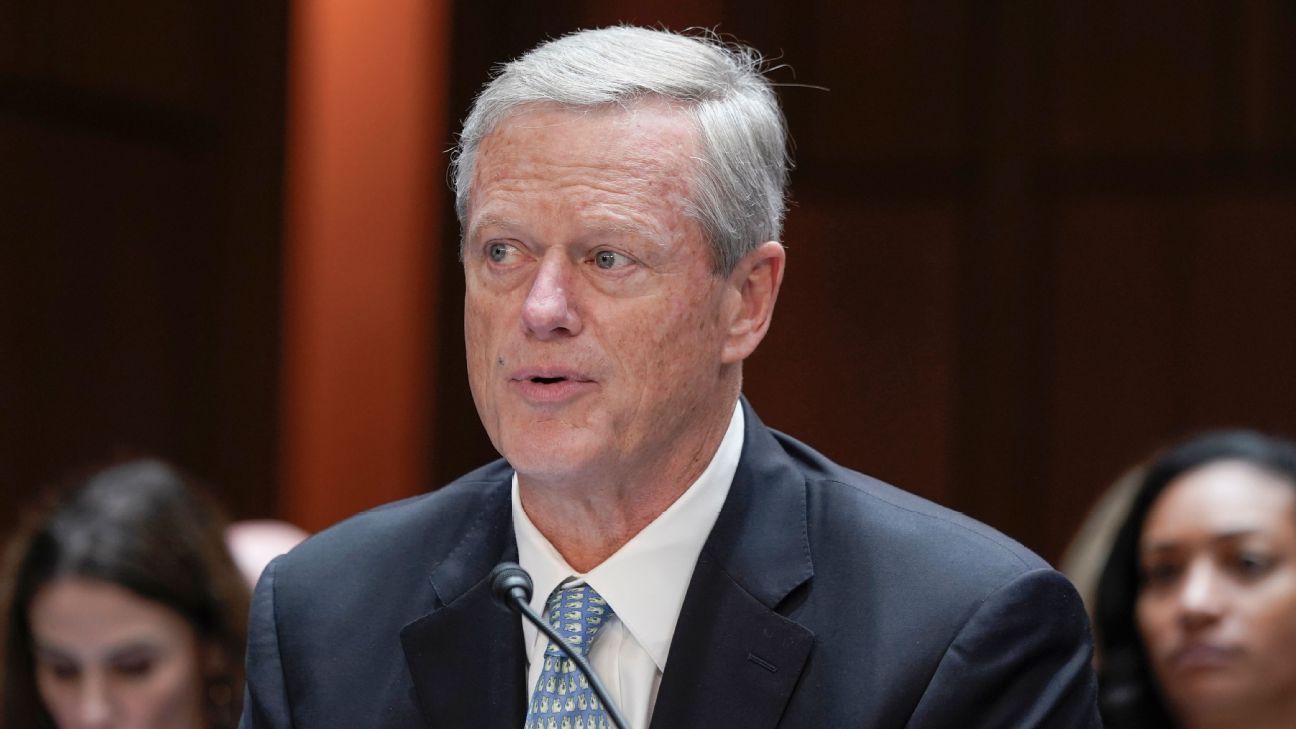INDIANAPOLIS — NCAA president Charlie Baker said he is not in favor of rules or federal laws that would place new limits on the way college athletes transfer between schools.
During a wide-ranging, hour-long interview with ESPN on Tuesday, Baker harbored no sympathy for the many coaches who have publicly complained about the difficulties they have in maintaining a stable roster in the new college sports environment that carries fewer restrictions on player transfers and allows for name, image and likeness deals that have proved to be incentives for players to consider changing teams.
“I’ve had conversations with a bunch of coaches who didn’t … walk out on their contracts,” Baker said. “One of the things I hear from kids when I talk to them about this issue is, ‘Coaches walk out on their contracts. What about us?'”
Baker said he thinks the rate of transfers in college sports reflects a larger trend of all college students changing schools more frequently than in the past.
“Do they transfer more than they did ten years ago? Yes. Do they transfer more than their peers who aren’t student athletes? No,” Baker said. “… They actually transfer less than students who aren’t student-athletes do, and kids just transfer more because they have more information, more data, and they’re more impatient about a lot of things.”
Baker, who is approaching the end of his first full year as the NCAA’s president, and many other leaders in college sports have petitioned Congress for help in regaining some control over the future of college sports amid myriad legal challenges to the NCAA’s rules. Several of the bills and proposals generated by Congress include provisions that would make it more difficult for athletes to transfer.
“I’m not much on that. I’m not,” Baker said when asked about the potential of a law that would restrict player movement and thus limit some of their economic power.
None of those bills have reached a committee vote — the first step toward becoming a law. Baker said he remains optimistic about the potential for Congress to provide some help to the NCAA, in part because, when he visits Capitol Hill, he’s having regular conversations with actual lawmakers rather than their staff members.
Baker said that even if Congress doesn’t pass an NCAA law before the coming election in November, he will continue pursuing a law into the future. There are multiple legal threats that pose major threats to the way the NCAA currently operates that could conclude in the next 12 months. Baker said that even if some of those antitrust cases or efforts to turn college athletes into employees succeed, the NCAA will continue pressing Congress for help.
“If we don’t get it done this year, [we’ll] certainly have more examples about why it would be important to take on preemption and compensation and employment and some of these other issues in the next Congress,” he said.
Baker added there “really isn’t a path forward” for the NCAA to solve its current legal issues in a sustainable way without some intervention from federal lawmakers.
Among other topics discussed with ESPN at the association’s headquarters, Baker said he thinks there is an opportunity to expand the NCAA men’s basketball tournament — if it’s done with care. Leaders of some of college sports’ biggest and most powerful conferences have told ESPN and other outlets in the past week that they would like to press for changes that would allow for more of their teams to have access to March Madness.
Baker said he does not support the idea of decreasing opportunities for schools from smaller leagues to make the tournament by eliminating any of the automatic bids those leagues get for the teams that win their conference championships.
“Most of the people who follow college sports think the NCAA tournament in basketball is perfect, right? So anything that’s done to change it needs to be done with care and consideration,” he said.
Baker said the NCAA’s basketball committee has been discussing those ideas since last summer, and that the association might have some update on those potential changes between now and the end of this year’s tournament in early April.
